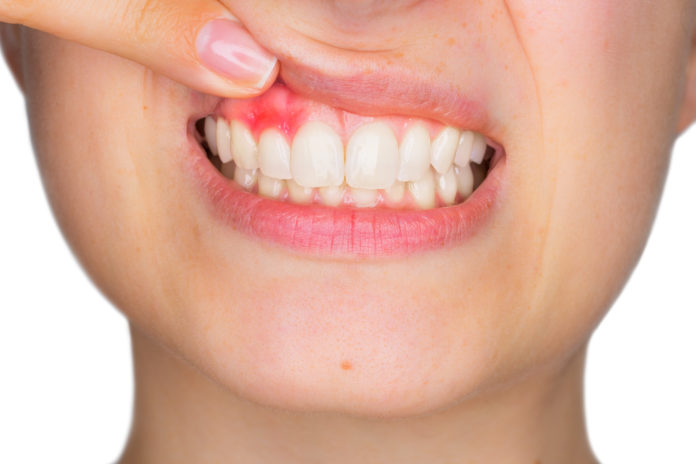A smile is the first trait that communicates a woman’s happiness and confidence; if you wish to keep your winning smile out in front, you will want to take special care of what’s behind it – your periodontal (gum) health.
Periodontal health is connected to a woman’s overall health. As your health care needs change throughout your life, during puberty, pregnancy and menopause, your oral care needs may change too. Hormonal fluctuations during these times may affect your gum tissue and the underlying bone that supports your teeth. These changes may increase your susceptibility to periodontal disease and require you to take special care of your oral health.
What is Periodontal Disease?
Periodontal diseases are chronic bacterial infections that cause redness and inflammation. This inflammation damages the gums and bones supporting the teeth and if left untreated can lead to tooth loss. Furthermore, this infection can travel throughout the body. In fact, periodontal diseases have been linked to other inflammatory conditions such as cardiovascular disease, and diabetes
The main cause of periodontal diseases is bacteria in dental plaque, a sticky colorless film that constantly forms on your teeth. Plaque buildup can lead to the earliest form of the disease, gingivitis. During this stage, gum tissue can swell, turn red, and bleed easily. Gingivitis is reversible with professional treatment
and good at-home oral hygiene. Without this care, you put yourself at risk for more severe forms of periodontal disease.
Gum Care During Puberty
When a young woman enters puberty, the production of sex hormones, such as progesterone and estrogen increase. These elevated hormone levels may cause gum sensitivity and lead to a greater reaction to any irritation, including plaque. Gums can become swollen, turn red, and may feel tender.
Pregnancy and Gum Disease
Any infection, including gum infection during pregnancy, may put you at a significant risk of delivering a preterm, low birthweight baby. In fact, periodontal inflammation may play a role in developing preeclampsia, a serious condition that affects approximately 5% of U.S. pregnancies. The risk is too great to take a chance, so be sure to include periodontal health as part of your overall prenatal care.
If you are pregnant and have been diagnosed with periodontal disease, a simple non-surgical procedure called scaling and root planning performed by an experienced Periodontist may significantly reduce your chances of complications.
Infertility Treatment
Women undergoing infertility treatment who are subjected to ovulation induction for more than three menstrual cycles have higher levels of gingival (gum) inflammation and bleeding. Since periodontal diseases are chronic bacterial infections, a periodontal examination is recommended during the course of your infertility treatment. Medications including Oral Contraceptives
Synthetic hormones in oral contraceptives are designed to mimic pregnancy and may cause your gums to turn red, bleed, and swell.
In addition, some commonly prescribed medications such as antidepressants and certain heart medications may cause dry mouth, increased plaque build-up and enlarged gum tissue. These conditions frequently result in bacterial infections under the gum line causing bleeding gums and bad breath.
Menopause
During menopause or post-menopause, you may notice a change in the way your mouth looks or feels. You may experience discomfort including pain, burning sensations in the gum tissue, mouth sores or apthous ulcers, and altered tastes. Saliva substitutes are available from your Periodontist to help lessen the effects of a “dry” mouth. Post-menopausal women may significantly reduce tooth loss by controlling their periodontal disease, especially if diagnosed with Osteoporosis.
Tooth Loss Due to Osteoporosis
If you are diagnosed with osteoporosis, you know that you have low or decreased bone mass. You must take extra care in performing day-to-day activities because you are at increased risk for bone fractures.
Periodontal disease can lead to loss of bone that supports your teeth which can lead to tooth loss. If you are on medications for low bone density, it is very important to inform your Dentist and Periodontist so they can closely monitor your periodontal health.
Diligent at-home oral hygiene, professional cleanings, and Periodontal evaluations are an essential part of your overall health at every stage of a woman’s life.
To learn more or to schedule a periodontal evaluation with Dr. Karl Smith in Waldorf, MD or Alexandria, VA visit www.drkarlsmith.com.











